
“It is curious how quickly one’s animal instinct of survival comes to the fore in primitive lands,” recalled Edith Eudora Kohl in her homesteading memoir Land of the Burnt Thigh: A Lively Story of Women Homesteaders on the South Dakota Frontier. The year was 1907, and Edith and her sister Ida Mary had settled on their homestead claim 30 miles southeast of Pierre. “It was a frontier saying that homesteading was a gamble: ‘Yeah, the United States government is betting you 160 acres of land that you can’t live on it eight months.’ Ida and I weren’t betting; we were holding on, living down to the grassroots. The big problem was no longer how to get off the homestead, but how to keep soul and body together on it.”
Edith and Ida weren’t the first or the last single women 21 years old or older to try their hands at—and be challenged by—homesteading Western lands. The 1862 Homestead Act—and later the Kincaid Act of 1904 that doubled the homestead from 160 to 320 acres—gave single, widowed, divorced, and abandoned women the right to homestead. And they did it successfully at a greater rate than men.
Homesteading proved to be an acceptable enterprise for single women (married women could keep their claims after marriage) in the West, and those who settled the West outside of homesteading or were married had fewer rights under the law and in the courts.
Bu hikaye True West dergisinin July - August 2020 sayısından alınmıştır.
Start your 7-day Magzter GOLD free trial to access thousands of curated premium stories, and 9,000+ magazines and newspapers.
Already a subscriber ? Giriş Yap
Bu hikaye True West dergisinin July - August 2020 sayısından alınmıştır.
Start your 7-day Magzter GOLD free trial to access thousands of curated premium stories, and 9,000+ magazines and newspapers.
Already a subscriber? Giriş Yap

FIREARMS COLT WALKER 47
THE LEGENDARY HANDGUN THAT REALLY WON THE WEST
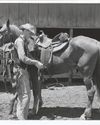
HERITAGE TRAVE
THE AMERICAN WEST IN ALL ITS GLORY OUR ANNUAL FAVORITES LIST CELEBRATES DESTINATIONS ACROSS THE WESTERN UNITED STATES.
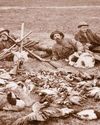
Wild Turkey, and Not the Drinkin' Kind
The actual bird was a favorite of pioneers.
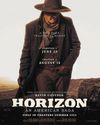
THE PASSION PROJECTS OF THE MODERN WESTERN
A YEAR OF UNDERRATED EXCELLENCE
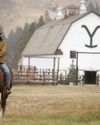
WESTERN BOOKS THEN AND NOW
THE STATE OF WESTERN HISTORY AND FICTION PUBLISHING IN 2024 IS ONE OF GRIT AND DETERMINATION.
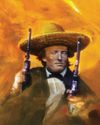
SAMUEL WALKER VALIANT WARRIOR
While a prisoner at the castle of Perote, Walker was put to work raising a flagpole. At the bottom of the hole, Walker placed a Yankee dime, vowing to someday come back and retrieve it, at the same time exacting revenge on his Mexican captors. In the summer of 1847, when Walker's mounted riflemen returned and routed Santa Anna's guerillas, the young captain kept his promise and got his dime back.
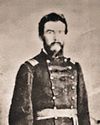
THE BATTLE OF CENTRALIA
ON September 27, 1864, Bloody Bill Anderson and about 80 men took over the small railroad village of Centralia, looting stores and discovering a barrel of whiskey that they hauled out into the street. Wild enough when sober, they soon were roaring drunk.
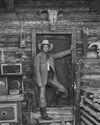
THE MAN WHO SHOOTS THE WEST
Jay Dusard is a living American photographer who has made Arizona his home for over 60 years, seeing it first in 1960 on a visit, moving here for good in 1963.
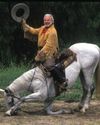
A TRUE WESTERNER INDEED PHIL SPANGENBERGER 1940-2024
Spangenberger had Nevada trained to bow by the legendary horse trainer, Glenn Randall, who trained Roy Rogers' Trigger, Gene Autry's Champion, Rex Allen's Koko and the Ben Hur chariot horses, among other great equines.

Where Did the Loot Go? - This is one of those find the money stories. And it's one that has attracted treasure hunters for more than 150 years.
Whatever happened to the $97,000 from the Reno Gang's last heist? Up to a dozen members of the Reno Gang stopped a Jeffersonville, Madison and Indianapolis train at a watering station in southern Indiana. The outlaws had prior intelligence about its main load: express car safes held about $97,000 in government bonds and notes. In the process of the job, one of the crew was killed and two others hurt. The gang made a clean getaway with the loot.